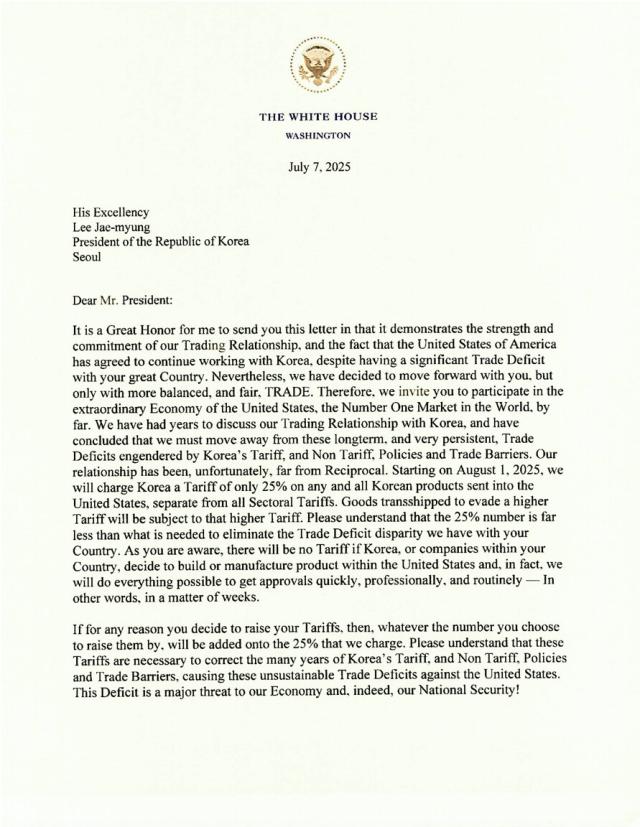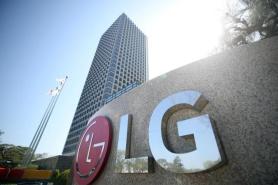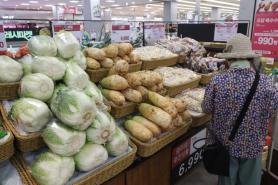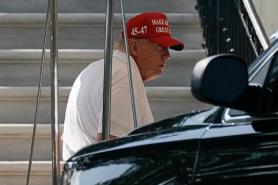
In a letter posted to his social media platform, Trump gave the government of President Lee Jae Myung just three weeks to reach an agreement before the sweeping duties take effect.
The announcement comes as his previous tariff measures are set to expire on Tuesday, heightening pressure on Seoul to make concessions or face far-reaching consequences for its export-driven economy.
“Our relationship has been, unfortunately, far from reciprocal,” Trump wrote, criticizing what he described as an imbalanced trading relationship.
“Starting on August 1, 2025, we will charge Korea a tariff of only 25 percent on any and all Korean products sent into the United States, separate from all sectoral tariff.”
The proposed tariff, Trump argued, is a corrective measure aimed at reducing what he characterized as a "significant trade deficit" with South Korea. However, he acknowledged that the 25 percent rate would still fall “far less than what is needed” to eliminate the disparity.
The letter also included a veiled warning: if Seoul retaliates with countermeasures, Washington would match those actions with additional tariffs “on top of the base 25 percent rate.”
Despite the combative tone, the president appeared to leave a door open for negotiation.
He suggested that the tariffs could be adjusted — “upward or downward” — depending on future talks and Seoul’s willingness to remove what he described as “trade barriers.”
In a gesture aimed at encouraging foreign direct investment, Trump said that South Korean companies that manufacture in the United States would benefit from fast-tracked regulatory approvals, processed “quickly, professionally, and routinely — in other words, in a matter of weeks.”
The ultimatum to South Korea was one of two issued Monday. In a separate statement, Trump said the United States would impose 25 percent tariffs on all Japanese imports, raising the rate from a previously established 24 percent as part of a parallel campaign to “rebalance” trade relationships in the Asia-Pacific region.
Trump's new timeline is likely to intensify diplomatic and economic discussions in Seoul, where the export-heavy economy is deeply intertwined with American markets.
Copyright ⓒ Aju Press All rights reserved.




